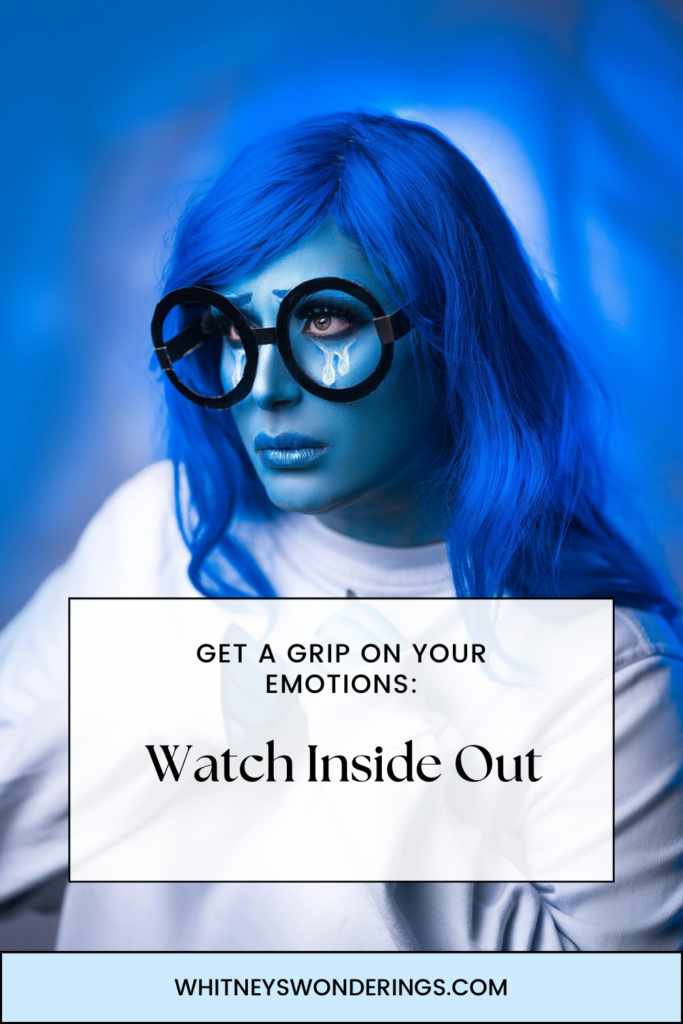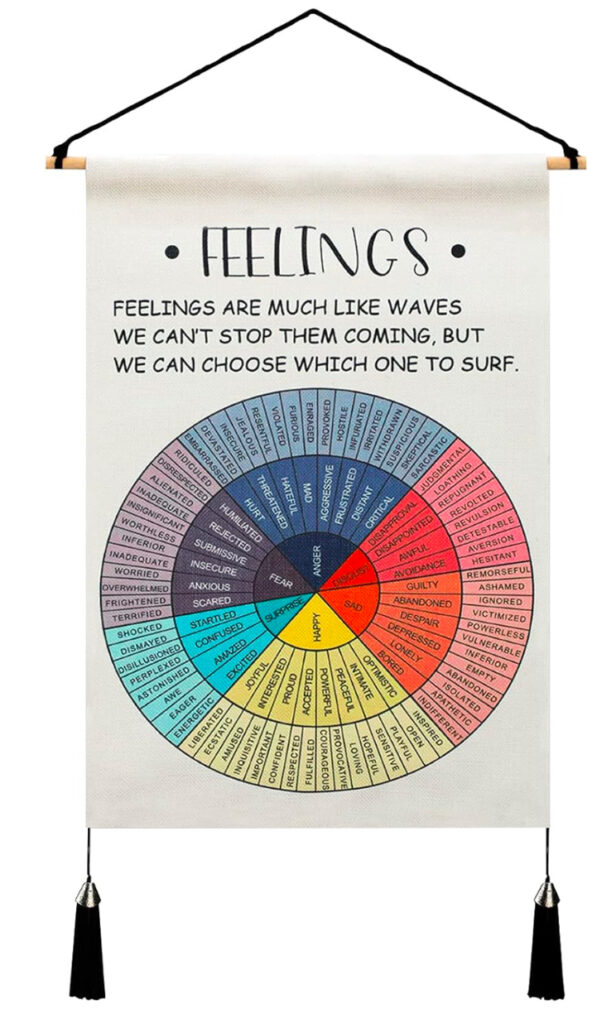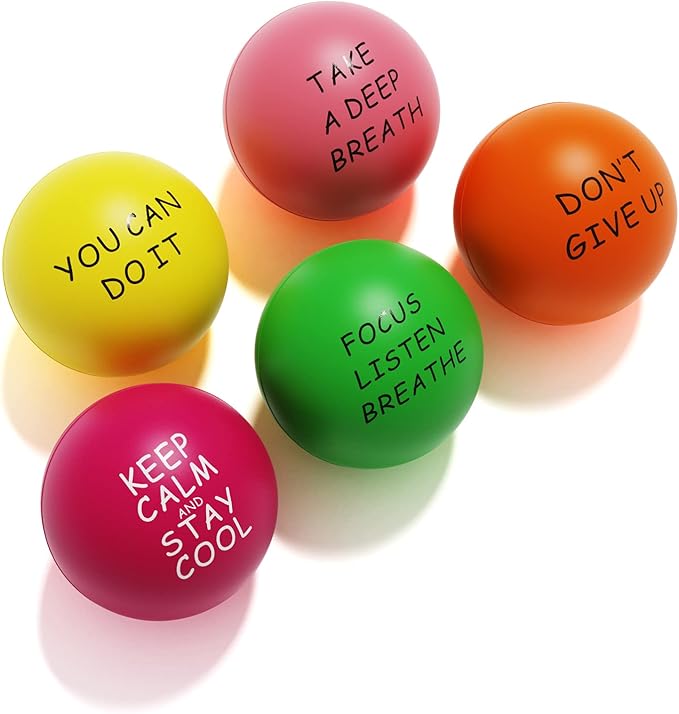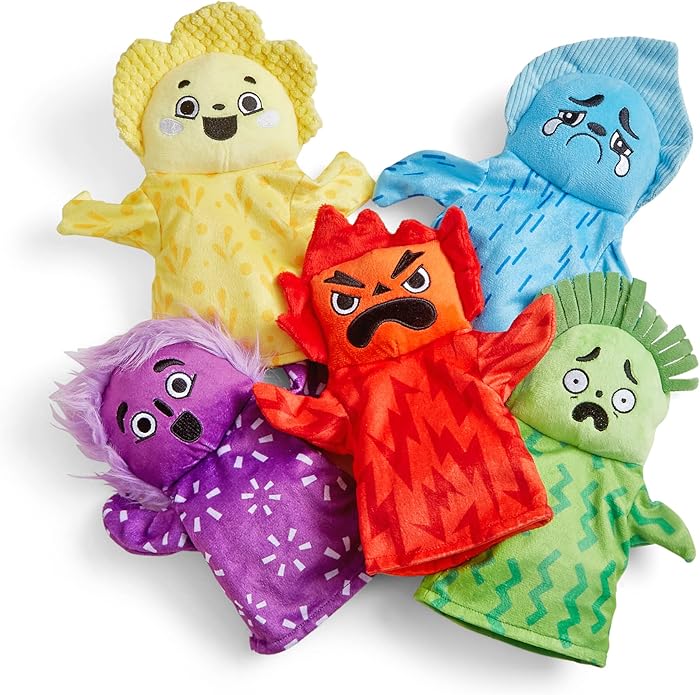That’s right, who knew that a movie made for 4 year olds could help a grown adult deep-dive into their emotions? I was so tired of not knowing where my emotions came from or how to handle them. I would react to situations and make decisions based on my emotional response alone. Someone cut me off? Anger. Then say unkind things. Unkind thing was said to me? Sadness. Take it personally. Running late to work? Anxiety. Speed up and text manager at the same time I was maybe going to be one minute late.
So, you get my point. It’s easy to let your emotions rule your thought process and then lead you to make poor or irrational decisions. Not to mention, recognizing and being more in-tune with your emotions can affect how often you feel those emotions. For example, someone cut me off? Empathy. Maybe that person’s rushing to the hospital. Unkind thing was said to me? Caring. I feel bad that person feels they need to put me down to pick themselves up. Running late to work? Indifferent. There’s nothing I can do about it now, other than get to work safely & let my supervisor know I’m running behind.
I’ve learned to flip my emotions to a positive. Well, most of the time. There’s no denying that we will all have bad or off-days. However, being able to recognize and navigate your emotions instead of them controlling you, is a freeing experience. How did I get such a good grip on my emotions? It takes practice and time. An everyday effort to be more self-aware of your thoughts, feelings, and actions. My first step to give you: watch Inside Out.

Some links in this post are affiliate links that may help me earn a small commission at no extra cost to you.
What is Inside Out?
This movie depicts emotions as living beings within our heads. Joy, a yellow ray of sunshine with vibrant blue hair. Sadness, a short and blue droopy character who’s always moping. Anger, a red, mean-looking character with a very short temper. Disgust, a green, picture-perfect girl who can’t stand social awkwardness and bad fashion trends. And finally, the last character in the first film is fear; a skinny, purple man that’s afraid of his own shadow.
The movie follows a girl, Riley, from birth to her “tween” years (they left puberty to Inside Out 2) and her emotions during those times. By the end of the movie, one of the themes that I gathered is that our emotions are all there to help us in one way or another. Whether it’s anger or sadness, they each have a role to play in our day-to-day lives.
What are my “negative” emotions telling me?
As I mentioned, in order to hone in on your emotions you must first recognize them and learn to appreciate them. The section below will outline some emotions and why they may be in place to help you, not hurt you.

Check out this super cute feelings wheel tapestry!
Anger
Can you believe that person cut me off? Why would he use that tone with me, I’ve done nothing wrong! This waiter better bring me some water soon or they’re not getting a tip!
We’re all familiar with these feelings, when your blood starts to boil and ears start to burn. That’s anger, frustration, and sometimes confusion. In the movie Inside-Out, Anger’s head literally light’s on fire when he takes over Riley’s emotions!
How could this feeling be helping me? Start to pay attention to what is making you angry. Is this emotion consistently coming up when you’re waiting for food? In this case, maybe Anger is telling you that you’re afraid of starving. Think of a time in your past when you went without food, what were you feeling then? Your emotions might just be a reflection of emotions or traumatic experiences that you’ve been through in the past.

Stress getting the best of you? Nothing some good ol’ stress balls can’t help with!
Sadness
Why am I not good enough? It hurt when they called me selfish. Will I ever be a better partner?
Man, sadness is a tough one. It was hard for me to believe that this feeling was doing anything other than tear me down. However, recognizing patterns of what kinds of things made me sad helped me to figure out why they were making me sad. For example, whenever my integrity gets questioned I take that very personally and generally get quite sad when my intentions get questioned. Once I recognized that my sadness was trying to tell me that I stand true by my intentions and feel bad when they’re questioned, I was able to stop taking those comments so personally. Instead, I question the comments made in hopes for more understanding.
Disgust
The reason behind disgust is pretty straightforward. Instead of the gross, moldy-bread I’ll take the fresh one. Instead of saying something that makes you “cringe,” maybe choose a more witty thought. This emotion protects children from poison, teens from social embarrassment, and adults from mis-matching their clothing or drinking car gas (despite the smell…).
Anxiety
In my opinion, anxiety can be the most helpful and hurtful emotion of all. Let’s start with a hurtful instance for example, social anxiety. Connection with other human beings is a basic human need, and unfortunately anxiety sometimes talks us out of being around other individuals. Another example would be when anxiety overtakes a beautiful situation. Let’s say you’re at a wedding, and all of a sudden those anxious thoughts of “what if I spill wine on her dress by accident?” Or “what if I make a fool out of myself on the dance floor?” Show up. Unfortunately, these thoughts are common for someone ridden with anxiety.
In my blog post 3 Attachment Styles & How to Overcome Them I give an in-depth view of what an Anxious Attachment style may look like. To give a brief summary, anxiety may cause you to consistently wonder if your partner is cheating on you, wanting to cheat on you, or just doesn’t love you at all.
Those are all examples of how anxiety is not benefitting you and your wellbeing. However, as my therapist asks me, “what are some more positive things that your anxiety could focus on?” At first, I was confused about this question. “What do you mean? Anxiety is only here to stress me out!” But then I watched Inside Out 2, and learned that anxiety can help me focus in on an important school paper, stay ahead of my finances, not forget my husband’s birthday, and so much more.

Trying to explain emotions to your littles? Try out these adorable emotion puppets!
So next time you’re experiencing a strong emotion ask yourself- What is this emotion trying to tell me? And how can I flip this emotion to a positive learning experience?
